Devin: What is your superpower?
Joseph: I believe that first and foremost, my superpower is my understanding that I am a reflection of the divine in my full uniqueness and within the full mysterious nature of how, in fact, all of us are individually, but yet collectively, a reflection of who the divine is, whether you call God, God, whether it's divine intelligence, the energy or the force, whatever your understanding of that idea and sense of divinity. What my superpower is, is that I have come to embrace, respect, honor and cherish that I am a full imprint of the design of the divine, and that my design as a human being is divine. It is unique, and that my imprint is distilled from the mind of God.
Bishop Joseph W. Tolton is leading two substantial efforts, working to unify a global community of people of African descent and helping people worldwide within the LGBTQ community.
Unifying a Global Community
“Interconnected Justice is a youth-powered network connecting people of African descent on the continent of Africa with those of us of African descent throughout the diaspora for the purpose of really reunifying people of African descent because we have so very much in common, and we are stronger together,” Joseph says.
Joseph almost always refers to the organization by its abbreviation, IC Justice. That when pronounced, people hear “I see justice” is no coincidence.
He is working to prepare the next generation of Pan-African activists. “We have 24 ambassadors from eight different countries around the world,” he says.
“Our young people from Haiti, Brazil, the United States and Congo and Uganda work together to identify what they have in common, understanding what we don't have in common, but mining those things that connect us and creating potential solutions that can be implemented from a local perspective,” he says.
One of the tools he uses is IC Justice TV, taking advantage of internet streaming technology. “We need a media ecosystem that mobilizes and engages people of African descent in this great project of reunification,” he says.
Amidst the tragic war in Ukraine, reports of gatekeepers treating people of African descent poorly when trying to leave Ukraine or enter a neighboring country demonstrate the nearly universal problem of bias. “No matter where you are as a person of African descent, based on your epidermis, there are some social challenges that you are going to face,” Joseph says.
Joseph sees a clear role for IC Justice growing over time. While a number of organizations exist to unify Africans in Africa or other geographies, they are all limited by their tethers to place.
“There is a need for a body like interconnected justice, which would be an intervening body in a crisis that allows the resources of the diaspora and the continent to converge in helping to bring aid,” he says.
The Power of Haiti
Joseph shared a fresh perspective on Haiti.
I had the pleasure of interviewing the former minister of justice of Haiti. His name is the Honorable Bernard Gousse. We were talking about matters of Black liberation and Black justice. He said, “Bishop, you know, it's important that I remind you that the Black Lives Matter movement actually started in Haiti. And we started that movement in 1806 when we overthrew the French colonizers who were not only colonizers, but they were our slave masters, and we became the first independent black republic in in the world.”
Haiti has paid a literal price for its liberation for more than two centuries. Depriving France of its unpaid labor force in the Caribbean caused the powerful European nation to impose a debt equivalent to more than $20 billion today on the tiny country.
“The truth is that because Haiti did what they did then, they have paid the social, economic and spiritual price for embodying the spirit of black liberation and defiance and self-determination and self-empowerment,” Joseph says.
Arguing for more Pan-African support for Haiti, Joseph says, “Haiti should be the Black Singapore of the world. It should be the place where we make tremendous economic and social investments and where we return as a bit of a mecca of liberation.”
A historical twist often unappreciated by Americans who take for granted that their country has two coasts is that Haiti’s successful revolt resulted in the French devaluation of their claim to a vast swath of what is now the United States. The Louisiana Purchase is the result.
Many people, not just those of African descent, have benefited tremendously from Haiti’s history.
“There are many reasons that Haiti is the country that it is today, but it must become a country that embodies the glory of the African American, the African spirit of liberation,” Joseph says.
LGBTQ Advocacy
Joseph explains how he pairs his advocacy for African empowerment with his work in the global LGBTQ community:
In the House of Social Justice, I believe that LGBTQ dignity is a division, and that racial justice for people of African descent is a division. Gender justice is a division. Fighting antisemitism is a division. But the holding company that we are all working for is a common vision of the world in which all people are free to be who they are and that their destiny will not be bound up by any God-given attribute that someone else deems as making them less viable of a human being.
Putting it another way, he says, “The deep connection between the work that I do as an LGBTQ advocate and a racial justice advocate is that we're really deconstructing patriarchy, we're deconstructing white supremacy.”
For those of us who are cis-gendered, middle-aged white men (I’m looking in the mirror here), it is sometimes difficult to see into the corners of intersectional diversity. We too often lump people into big groups, gays and Blacks, for instance, ignoring the experience of gay Black men and how it differs from the broader Black or broader gay communities.
Joseph patiently educated me:
The texture of homophobia or resistance to queer love within black communities, particularly black American communities, is very, very, very distinct and unique.
I think it really goes back to the transatlantic slave trade and slavery and the ways in which black men and their bodies were treated and abused. Whenever someone would try to actually revolt or push back or to assert oneself physically, one of the things that we don't talk enough about is that oftentimes black men were taken out into public spaces and they were literally raped by a white man to demean them, to degrade them, to put them back into their place.
That kind of degradation of the physical body seeps into the heart and mind of a people and is passed down from one generation to the next. So the fear and the shame that we have as people of African descent in our institutional and historical memory is very specific in terms of what it brings up when we're dealing with or confronting a sexuality that is not heteronormative.
So our experience very much impacts the ways in which and the whys and the rationales for homophobia in our community.
Again, so many of our women were consistently raped during slavery. Can you imagine being a man in bed with your wife and the master calls her or drags her out to his bedroom in the middle of the night and you can do nothing to prevent it?
Your sense of manhood, your sense of your ability to protect your wife and your family is trampled upon. And so that pain has to go somewhere. And so you then define yourself and define your masculinity and your manhood in a very particular way.
So, the idea of being a man in a real man and a viable man and being heteronormative have been conflated in a particular way in our community, which causes our sense of manhood to be so defined by external characteristics of how many children can I have or how masculine am I, or how strong and virile am I in my physiology and in my physical presentation?
So, black men who are considered effeminate or weak or lovers of the same sex are often branded as traitors of real black masculine identity. And that makes our experience very, very, very unique, both in the world and within our own communities.
It was helpful to me to understand the nuances associated with the experience of a gay Black man.
In all his work, Joseph has relied upon a special superpower, his faith in his divine design.
How to Develop Faith in Your Divine Design As a Superpower
The Bishop accepts that humans have a wide variety of perceptions about deities and encourages people to find theirs, connecting to a sense of their divine nature. That sense of divine endowment builds confidence that allows people to do more good.
“I deeply believe that our God view informs our worldview,” Joseph says. “We have it when we have a particular God view that allows it to mirror who we are as human beings. It creates a certain sense of self-esteem, and it allows you to believe in your own viability, even when the world challenges that on a daily basis.”
Understanding his superpower requires us to understand his own story of coming out within a religious community that did not welcome it. He shared that story with me:
I was born and raised in Harlem in the very late 60s and raised in the early 70s. I was raised in the cradle of the Pentecostal church, and as a child born four months before Dr. King was killed.
Ketanji Brown Jackson talked about the fact that she saw herself as being the promise of the civil rights movement. I myself also am a peer of hers, in that regard.
I was raised with my parents believing that I could emerge as the promise of all the work and all the accomplishments of the civil rights movement. I say that just to lift up the degree to which I loved my community. The church was an epicenter of social change and social justice. Where growing up as a being who understood that I was different, but also a being who understood that I had this capacity to minister. I had this capacity for social justice.
There was, if I can use the spiritual term, oil on my head from the time that I was a child that was recognized and honored by my community. But because I was different, it challenged my ability to actually ultimately thrive in my community.
When I was in my early twenties after college, returning back to my church as a minister, my very best friend in the church was getting married and he asked me to be his best man.
Of course I said yes, but I was really wrestling with this process of coming out. My friends were mostly secular and they were standing on the sidelines rooting for me to come out, come out. We're here for you.
I was trying to deal with. But what does that mean? I'll lose my place in line. I'm set up to possibly be a prince of the church. You want me to give that up and forfeit that and lay that down?
But through therapy and prayer and just my personal desire to live the truth, I came out to my best friend. I did it in love and in honesty. I said, “I don't want to stand next to you and next to your bride—you're both very dear to me—and not tell you the truth.
They went to our pastor and they outed me. And they told him that I had come and made this confession. And then they asked me to not be in the wedding. It broke my heart. It was the beginning of the end.
This was the church that had informed, cradled and loved me and molded me to be on many levels who I was.
That was a defining moment for me, where I had to reach for a new understanding of who I was as an expression of the divine. And if I weren't able to find, hold and grasp and be anchored in that, I would have fallen and I would have slid. But thank God that was the a key and critical moment in time in my life in which this understanding of my being a divine design really manifested in my heart, mind and soul.
That knowledge became embodied in me, giving me the strength to really stand, make a sharp turn in my life that completely transformed my life and set me on a path establishing my feet to walk and do the work that my hands do today. What a critical time in my life. And I'm so very grateful that I was able to not only see the insight and hear it, but internalize it and act on it.
That experience forced him, in effect, to create a new understanding of his divine design and enabled him to help others do the same.
He often works with people who are developing a path to come out.
“One of the first things that I try to do with people is really assess what is the truth of your lived reality,” he says.
He consciously guides people to work not only on the spiritual but also on the practical, building a solid social and financial base “so that as they exit, they are able to do so in a way where their life is not going to fall apart.”
“There are so many different influences that cause us to think that we're othered or less than,” he says. By preparing the practical foundation, you enable the spiritual development.
Then, Joseph says, “We can then embark on a great spiritual journey and look at spiritual writings and spiritual practices and ideals and meditations and other kinds of spiritual work that one can do to really heal one's spirit.”
By learning from Joseph’s experience, you can discover the divine design in yourself, enabling you to develop confidence that empowers more good.


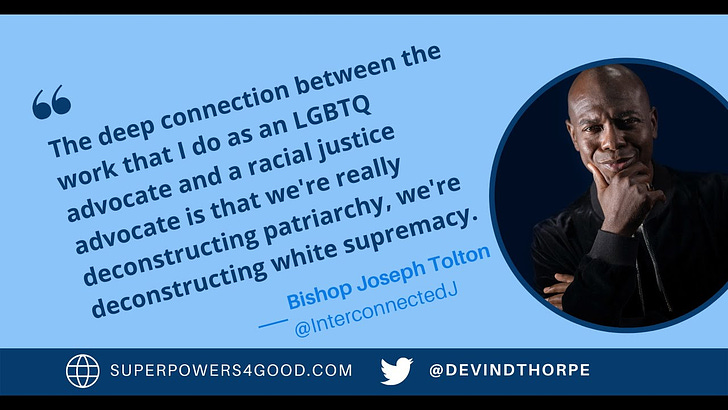




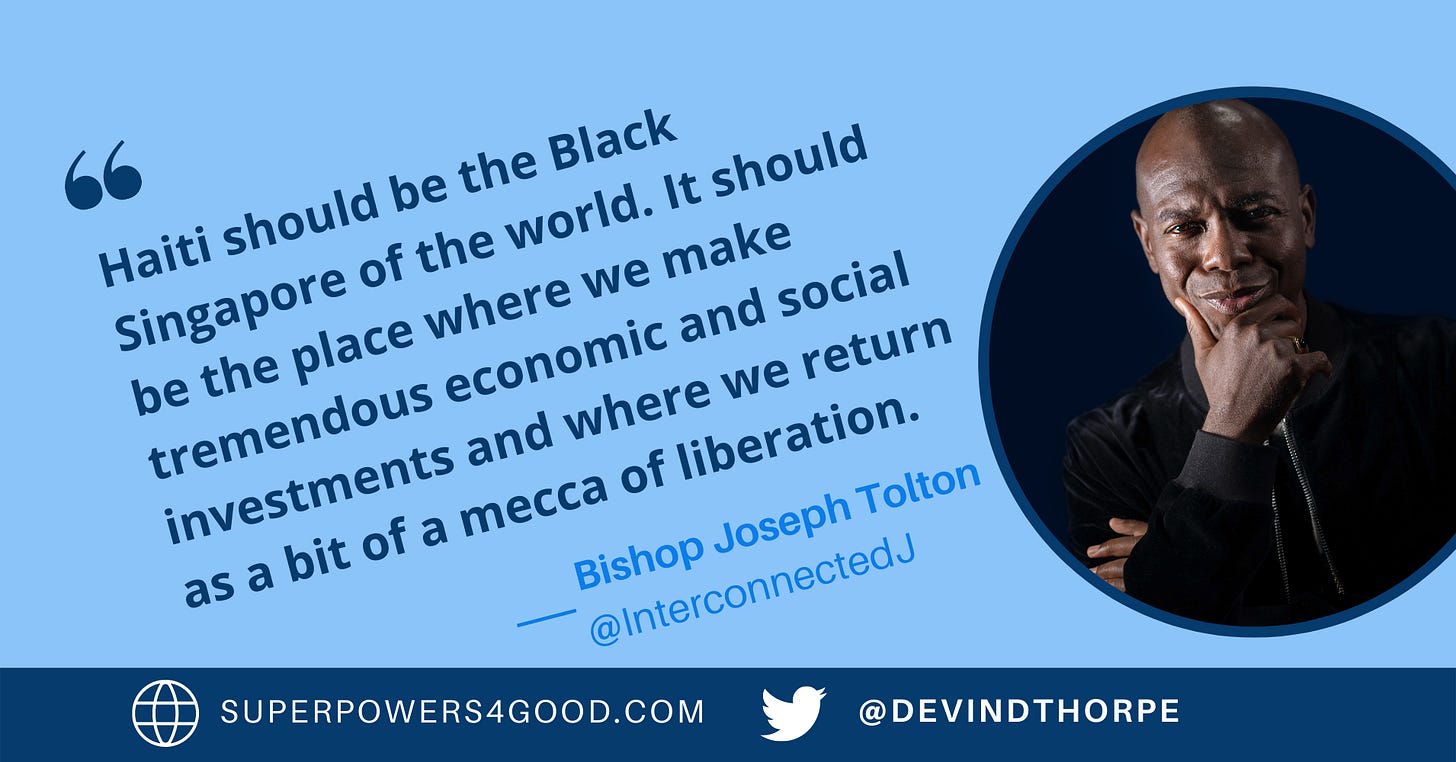
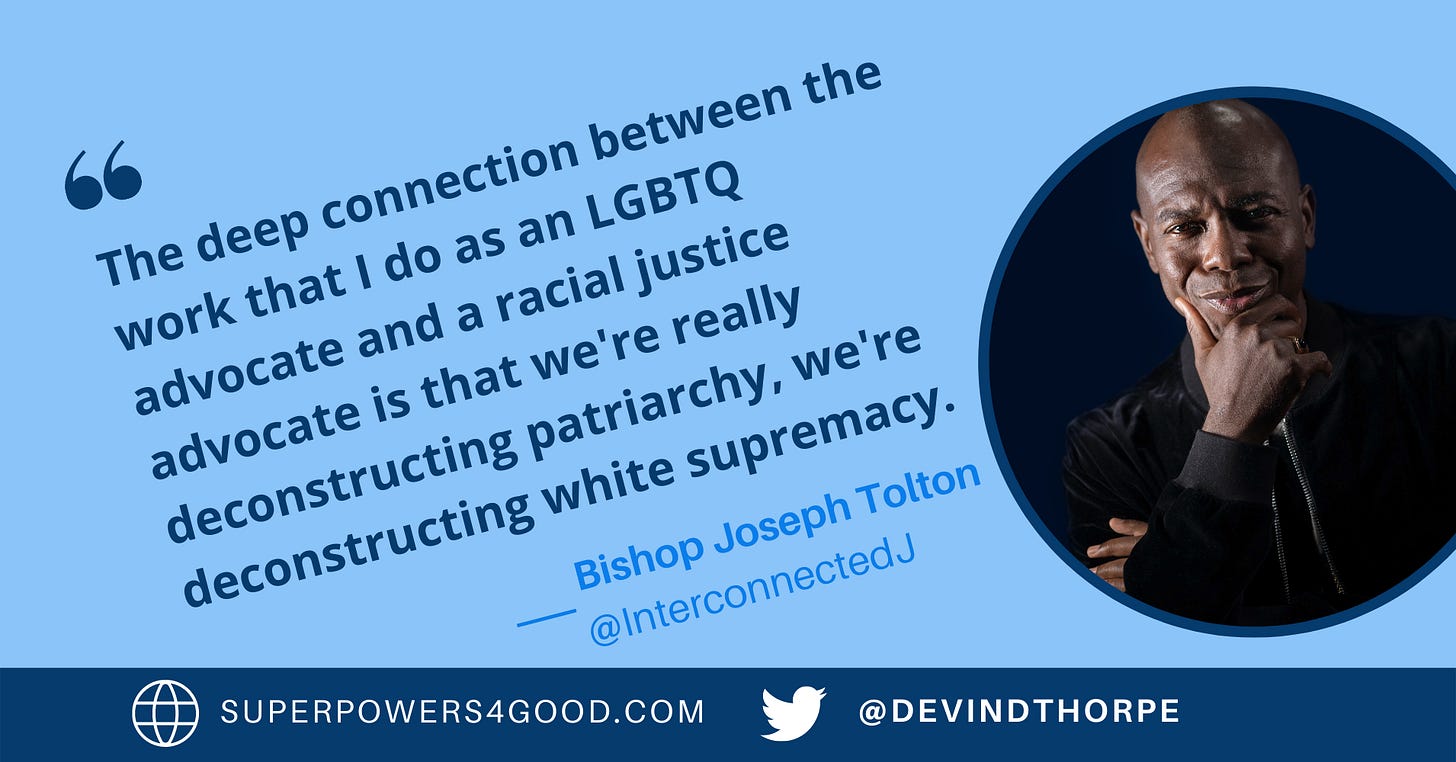



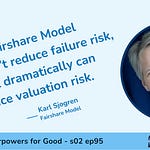


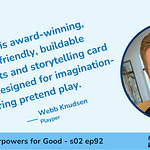


Share this post